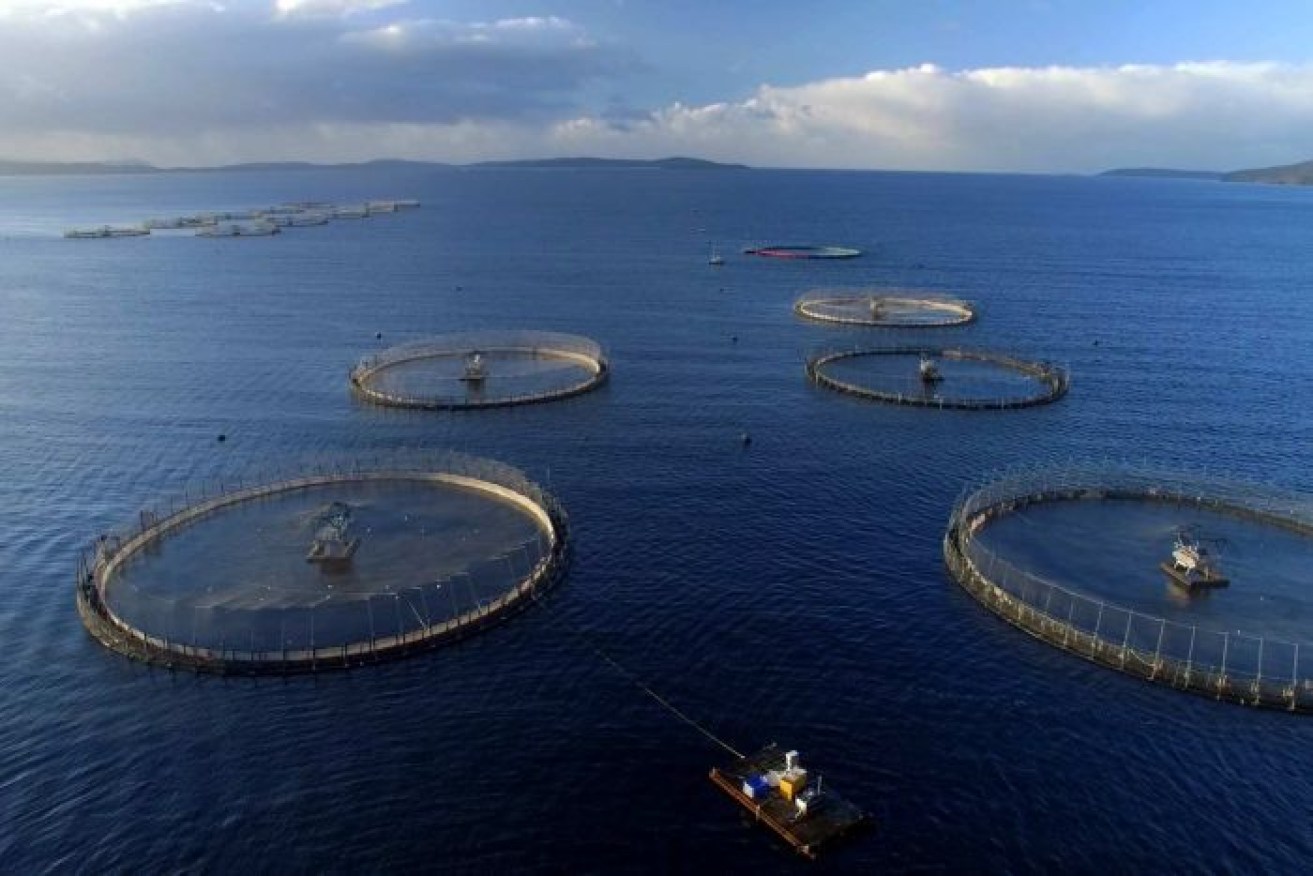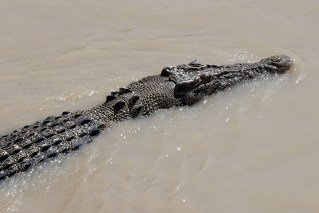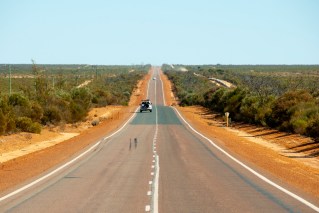Salmon crisis: Calls for moratorium on farming

Fishing operations in Macquarie Harbour. Photo: ABC
More than a million farmed fish have perished in a waterway on Tasmania’s west coast within six months, with salmon producers scrambling to invent a vaccine to combat the virus blamed for most of the deaths.
Tasmania’s Environment Protection Authority (EPA) has confirmed 1.35 million salmon have died in Macquarie Harbour since last October.
An area management agreement report provided by Huon Aquaculture, Petuna and Tassal found the deaths were mainly due to an outbreak of pilchard orthomyxovirus (POMV), transferred from wild populations.
That report has not been made available to the public.
EPA director Wes Ford told ABC Hobart the 2017 fish class was hit harder than expected, with the harbour’s salmon population at greatest risk.

EPA director Wes Ford. Photo: ABC
“It is above what they would normally predict to have lost, significantly above. The companies are working on investing in a vaccine,” he said.
Mr Ford said all three companies with farming leases in the harbour lost fish, but the breakdown of deaths between them was not known.
“It hit all three companies across the majority of leases, so that is troubling from the point of view of the management of that disease,” he said.
The disease only transferred to salmon, meaning the harbour’s trout population escaped, Mr Ford said.
He said the disease was “a bit like the flu” and fish under stress were at greater risk of infection.
Mr Ford said the solution would require spreading out the population.
“One of the reasons why the fish got the disease in the first place was mixing young fish with old fish, so by providing that year class separation, there’s at least a kilometre separation between the young fish and the fish already in the harbour,” he said.
“POMV can be exacerbated by stress caused by heat, low oxygen, and I think this summer we’ve seen some elevated temperatures and clearly some concerns about oxygen.”
The Greens’ environment spokeswoman Rosalie Woodruff said the harbour had been damaged – perhaps irrevocably – and called on the Government to step in.
“We have to have a moratorium on all fish farming. The salmon farming companies have to get out of Macquarie Harbour,” she said.
It’s clearly the case that the system there is damaged, possibly beyond repair.”
Environment Tasmania said more than 2000 Tasmanians had petitioned salmon companies to release a fish death toll, and accused the Government of concealing the figures in the lead up to the March state election.
Laura Kelly from Environment Tasmania said they were still looking for answers.
“The Government is still refusing to release the January 2018 [Institute for Marine and Antarctic Studies] science on the harbour, while acknowledging that the report shows a worsening of conditions, increased marine species death under leases and four leases in breach of state regulations related to bacteria mats on the harbour floor,” she said.
Harbour’s biomass to be reduced for next two years
Mr Ford confirmed the EPA would be reducing Macquarie Harbour’s biomass limit by 21 per cent over the next two years, from 12,000 tonnes to 9500 tonnes.
He said that would not come as a surprise to the companies, which had seen a series of mass fish deaths and stock reductions over the past two years.
“Clearly, I’ve had to step down the biomass over a number of years now because the harbour has not been performing as it should,” he said.
“What I expect from this new biomass decision is that the harbour will actually improve, but of course there can be no guarantees.”
But Ms Kelly said the EPA’s latest biomass limit would not be enough to restore the harbour to healthy levels.
“A biomass of 9,500 tonnes will be maintained when biosecurity, animal welfare and endangered species protection all demand that Macquarie Harbour should be emptied of fish and given a chance to recover,” she said.








